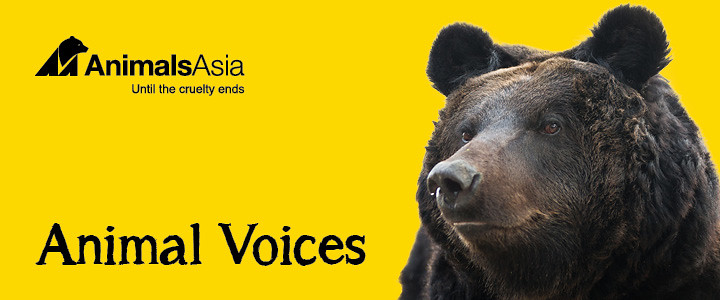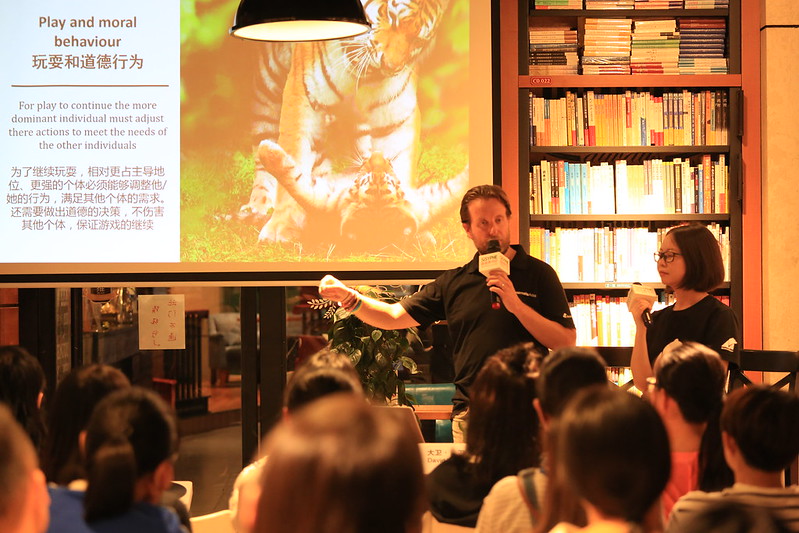How the human world is catching up with animal intelligence
09 March 2018
Humans have been getting it wrong for centuries, but research and education is leading to new laws finally recognising the sentience of non-human animals.
By Animals Asia’s Animal Welfare Director Dave Neale
The “a-ha” moments are impossible to miss. For most participants it comes when they discover something new about animal sentience – how horses communicate or the way penguin dads protect their eggs – and suddenly there is a flash of realisation at the depth of meaning in non-human lives.
These moments are almost always followed by a period of concern. If the lives of non-human animals are so rich, then how can we treat them as we do?
It can be quite scary for some people, prompting a vertiginous chain reaction which has them questioning many of their everyday choices – from what to wear, to what to eat, to how to be entertained.
These moments are exactly why our One Life programme exists. If we want people to value and respect the one life and welfare of individual animals, then they have to understand them.
The first One Life programme was rolled out in China and Vietnam in 2016, delivering information on both the emotional and cognitive capabilities of a variety of species.

Posters were put up in universities across China, while teachers in Chengdu and Beijing were trained to teach courses on animal sentience to primary school children, and educational materials were displayed in zoos.
Since then the programme has continued to grow and in summer 2018, we will publish the first course textbooks for primary schools. Plans are already afoot to follow this up with a version from secondary schools which could become part of the government curriculum.
This year we will train our 300th teacher in the principles of animal welfare education and while one zoo and 26 universities took part in 2016, this year it will be six zoos and over 30 universities.
A proven dilemma
We’ve chosen this approach because we can see the same process working all over the world.
Luxembourg’s Minister of Agriculture Fernand Etgen said in 2016:
“Animal welfare legislation requires profound reform because of what scientific advances have revealed about animals, and because of changes in how animals are viewed by human society.”
The proof of Fernand’s statement is borne out in the present pace of change around the world as our laws struggle to keep up with our modern understanding of animal sentience.
Last month in Switzerland for example it became illegal to boil lobsters alive. The practice has been common globally for hundreds of years, but knowing what we now know about the lobster’s capacity to think and feel, how can we continue to justify our brutality?
In 1939, Norway was the world leader in fox fur farming, but this year the Scandinavian country announced that it would end all fur farming by 2025.
In the UK, Scotland and England have announced upcoming bans on wild animal circuses declaring that circuses – which have been operating on the island for 250 years – fundamentally cannot meet the welfare needs of animals in small, mobile accommodation.
In Vietnam last year, the government announced they would completely end bear bile farming in the country and ensure every single bear is moved to sanctuary by 2022 as part of a landmark agreement with Animals Asia. While traditional medicine remain popular in the country, increasing awareness of the bile industry’s cruelty convinced the government to act humanely.
In 2010, The Chinese ministry responsible for the management of urban zoos announced an end to animal circuses within zoos having been convinced of the ethical argument that these archaic forms of entertainment harm the physical and psychological well-being of animals.
All over the world, humankind’s increasing understanding of non-human sentience is changing the ways we behave and the laws we write.
This is why our One Life programme in Vietnam and China is so important. Both countries have large populations who are increasingly receptive to animal welfare, yet – just as in the rest of the world – local laws continue to lag behind the rate of change.
We know from experience that once the breath-taking depth of animal sentience is widely accepted, more humane laws will follow.
BACK






